Latest episode
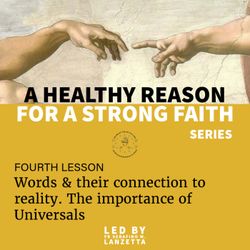
4. When words lose their connection to reality: The importance of Universals
01:58:54||Ep. 4In this fourth episode we analyse the importance of words and their necessary connection to reality. Words are signs: they point us to a meaning beyond them and require a clear bond with reality to be significant. The crux of the matter is the problem of the Universals, i.e., that which can be attribute to many things. The denial of universal essences as real, so as to reduce them to only sounds for a mere communication sake, can only lead to subjectivism. This is deleterious. In turn, the State, the Police, or a powerful political group, will decide what (new) meaning words have. Precisely what happens today in our society, where culture is influenced by controlling the language. PS The podcast is made by two parts: 1) the lesson, which goes on for 1h14min, and 2) Q/A sessions with contribution from the floor, following up.
More episodes
View all episodes
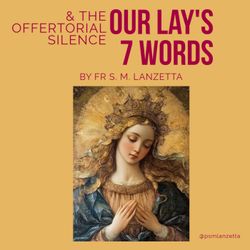
Our Lady's 7 Words & the Offertorial Silence
19:35|Our Lady pronounced only 7 words recorded by the Gospels: from the Annunciation through the Visitation, the finding of Jesus in the temple, up until Cana. As Jesus manifested His glory at that significant wedding, Our Lady ceased to speak publicly. Why? Moreover, in two central moments of Jesus' life, the Presentation in the temple and Calvary - two offertorial moments - no word by the Virgin Mary is recorded. Mary's silence is obedience to God and praise of His majesty. It is oblative. Her silence is the very pattern of Christian life and of liturgical offering at Mass.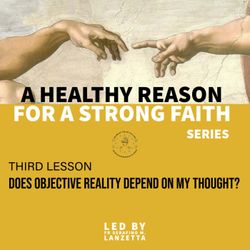
3. Does objective reality depend on my thought?
02:05:26||Ep. 3In this third episode we deal with the problem of perception of reality. Realism vs. Idealism or Anti-realism. The question that arises is this: Are we sure that there are things beyond our own comprehension and that there is an external world wider than our sensation and thought? This seems an ongoing doubt. How to go about it? We deal with the thought of George Berkeley (1685-1753) still relevant and influential today.PS The first hour is the lecture given by Fr Serafino. The second one, the Q/A session with very good interactions by the audience.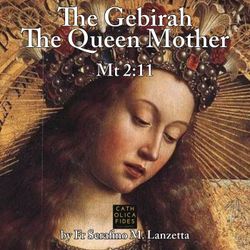
Our Lady as the Gebirah - the Queen Mother in Mt 2:11
45:49|Why is St Joseph not mentioned in the account of the Magi upon their arrival at Bethlehem (cf. Mt 2:1-11)? Joseph of Nazareth plays a prominent role in Matthew's Gospel, though. His presence is well outlined in what just precedes the moment of the adoration of the Magi (the Angel telling Joseph in a dream about the divine Incarnation) and what follows it (Joseph alerted by the angel to flee with Jesus and Mary into Egypt). So he is definitively not forgotten by the evangelist. However, the message delivered by the Gospel of the Magi is that the Baby is recognisable as the true Davidic King by being "with Mary his Mother." Our Lady is the Gebirah, the "Great Lady" or the "Queen Mother", who, as in the Davidic realm, is beside the King pointing to his royal dignity. As already with Bathsheba in the book of 1Kgs 2:19, Our Lady sits with the Son, or, even better, is the very Throne of the Son, the Seat of Wisdom. In this very moment, the great icon of Our Lady with Child Jesus sitting on her lap and offered to our adoration and contemplation takes shape and will be later painted.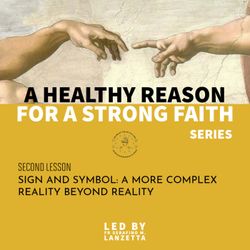
2. Sign & Symbol: A More Complex Reality Beyond Reality
01:29:48||Ep. 2In this second episode of "Philosophy for All," we analyse what a sign is and its difference from a symbol. Both sign and symbol point us to a reality beyond themselves. The sign and the symbol, without which we cannot live, are not the reality they point us to. Paul Ricœur (1913–2005), a French Philosopher, tells us that idolatry occurs when a symbol is mistaken for the reality. Idolatry, we can add, can also occur when the reality is mistaken for the symbol and everything becomes merely symbolic.Every first Sunday of the month, at 2pm, in St Jospeh's Hall - Tangier Road - Portsmouth (UK), we meet in person for a lecture on Philosophy open to and made easy for all.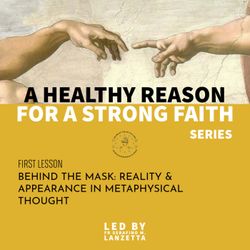
1. Behind the Mask: Reality & Appearance in Metaphysical Thought
01:12:04||Ep. 1With this first episode, we start a series on "Philosophy for All," investigating what Metaphysics is. In this first lesson we focus on the perception of reality with the help of Plato's Allegory of the Cave. How do we know what is real? How do we know that the reality we perceive is the final reality and not a mere appearance? What is real and what is apparent? Man is made for what is real and lasting: the ultimate reality.Every first Sunday of the month, at 2pm, in St Jospeh's Hall - Tangier Road - Portsmouth (UK), we meet in person for a lecture on Philosophy open to and made easy for all.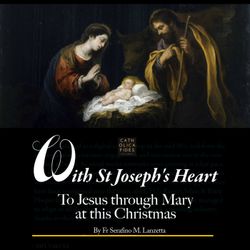
With St Joseph's Heart
01:00:25|St Joseph's heart is the mystery to contemplate at this Holy Christmas to welcome with it God's greatest gifts: Our Lady and Jesus, our Saviour. Joseph was espoused to Mary in a very unique and holy way - a virginal one. Through her, he embraced Our Lord and became His virginal father. St Joseph's heart was the very place where these two mysteries were laid, prefiguring also the cave of Bethlehem.
